Dr Alex Gilder and his work on UN peace operations, stabilization, and human security

This month’s Research Spotlight is on Dr Alex Gilder and his work on UN peace operations, stabilization, and human security.
Dr Gilder has recently become Deputy Director of Global Law at Reading (GLAR) and is keen to support and expand research on international law, human rights, and EU law at Reading.
Dr Gilder’s work is interdisciplinary, drawing on perspectives from law and international relations. Alex investigates various aspects of UN peacekeeping including stabilization, counter-terrorism, the rule of law, the protection of civilians, and security sector reform. His research has also applied the multidisciplinary concept of human security to examine the role of the individual in international law.
In late 2021 his book, Stabilization and Human Security in UN Peace Operations, was published by Routledge. In the book, Dr Gilder investigates the relationship between the concept of ‘human security’ and UN stabilization mandates, as they seek to meet the lofty expectations of securing conflict zones, achieving national reconciliation, and rebuilding state legitimacy. He identifies a number of risks and challenges for UN peacekeeping and stabilization operations in their pursuit of human security in MINSUMA, MINSUCA, and UNMISS.
The first risk concerns the increased militarisation of UN peace operations, which – Dr Gilder argues – is likely to be incompatible with human security. Dr Gilder notes that missions had focus on physical protection, but disregarded the fact that militarisation can put civilians at increased risk where violence is intensified. Another set of risks derives from the engagement in counterterror activities in close cooperation with the host state – and, at times, even other states, like France in Mali. For example, the book discusses how authorities in Mali and the CAR violated international human rights and humanitarian law; therefore, UN operations should be cautious when cooperating closely with such partners, and support for the host governments requires further assessment of the UN’s human rights due diligence policies.
Many of Dr Gilder’s contributions to the literature on UN peace operations are linked by a focus on human security or bottom-up engagement in peacebuilding. For instance, in his article in a Special Issue on The Rule of Law from Below, Dr Gilder develops further arguments made in his book to argue there needs to be an overarching, bottom-up strategy in place in UN peace operations to engage and empower local communities, and other civil actors, to be part of the rule of law process.
Dr Gilder has published further works on UN peace operations including, for example, the relationship between the protection of civilians and security sector reform, the role of UN peace operations in health insecurity, the relationship between UN peacekeepers and (re)building the rule of law, the mandate of MINUSCA, the local turn in peacekeeping and the practice of UNOCI, and the legal ramifications of stabilization mandates.
He is currently working on projects relating to the protection of civilians and militarisation in UN peace operations as well as editing a book on the Multidisciplinary Futures of UN Peace Operations with Dr David Curran, Dr Georgina Holmes and Dr Fiifi Edu-Afful. He is also interested in the UN’s role in counter-terrorism, particularly in Mali, and has been invited to write a chapter on the topic which will serve as a prelude to a larger project in the future.
You can hear more about Dr Gilder’s book and work on these areas on a recent podcast for Humans of Security where he discusses all things human security and stabilization. He also gave a talk at Royal Roads University which is available on YouTube.
Dr Gilder’s expertise is utilised internationally in various roles. He sits on the Editorial Board of the Journal of International Peacekeeping and is an Editor (Developments in State Practice) for the Asian Yearbook of Human Rights and Humanitarian Law. He has been invited to teach classes on public international law and human rights as a Guest Instructor at the University of Notre Dame and as a Visiting Professor at the Institute for Peace and Conflict Studies, University of Hargeisa. He has submitted evidence to the Foreign Affairs Committee at the House of Commons and contributed to other contemporary discussions, such as the use of the term peacekeeping by President Putin during the 2022 invasion of Ukraine.
Dr Saeed Bagheri explores the contradictions in the application of the jus in bello and the jus ad bellum
 Dr Saeed Bagheri conducts research in public international law, with a particular focus on the law on the use of force (jus ad bellum), international humanitarian law (jus in bello), and international human rights law. His main research path explores the contradictions in the application of the jus in bello and the jus ad bellum.
Dr Saeed Bagheri conducts research in public international law, with a particular focus on the law on the use of force (jus ad bellum), international humanitarian law (jus in bello), and international human rights law. His main research path explores the contradictions in the application of the jus in bello and the jus ad bellum.
Saeed has published extensively on these areas, peacebuilding and post-conflict justice. His recent monograph International Law and the War with Islamic State: Challenges for Jus ad Bellum and Jus in Bello (Hart Publishing, 2021) interrogates the lawfulness of the war with Islamic State from a variety of legal aspects. It has been attempted to make inroads into the most controversial aspects of the application of jus ad bellum and jus in bello, particularly when discussing the use of extraterritorial armed force against armed non-State actors (ANSAs), and the obligation to protect civilian objects, including the natural environment. Through an examination of the case of Islamic State, the book offers a comprehensive study to close the gaps in jus in bello by contextualising the questions of civilian protection, victimisation and state responsibility by evaluating the US’s war-sustaining theory as a justification for the destruction of a territorial state’s natural resources that are occupied by ANSAs.
His publications appeared in important international peer-reviewed journals, including European Yearbook on Human Rights, Journal of Conflict and Security Law, Modern Law Review, Journal of Human Rights Practice, Irish Yearbook of International Law, International Journal on World Peace, Hungarian Yearbook of International Law and European Law, New Zealand Yearbook of International Law, Peace Review, Edinburgh Law Review, Nordic Journal of International Law. His scholarship has been cited in academic resources and official documents, including the Scientific Services of the German Federal Parliament (Deutscher Bundestag).
Besides his academic papers published in international peer-reviewed journals, Saeed also has published blog posts on EJIL: Talk, Oxford Human Rights Hub, Cambridge International Law Journal, Denver Journal of International Law and Policy, Völkerrechtblog, Harvard International Review, Australian Outlook, Foreign Policy Association and the Interpreter. His recent post EJIL: Talk post on ‘Treatment of Persons Hors de Combat in the Russo-Ukrainian War’, which also has been translated by the Ukrainian criminal justice practitioners into Ukrainian, has been recently cited in Wikipedia’s latest output on ‘War crimes in the 2022 Russian invasion of Ukraine’.
Saeed is currently working on a few projects, including one examining the military assistance and State responsibility for ‘in Bello’ violations during non-international armed conflicts. This project builds upon State responsibility under the ILC Draft Articles on State Responsibility (ASR), with a specific focus on grounds for holding military allies responsible for in bello violations committed in conjunction with the acting State during non-international armed conflicts. This research seeks to answer the questions of when are assisting State responsible for in bello violations during non-international armed conflict, when are assisting States responsible for breaches of conduct attributable to them, when are they responsible for their aid and assistance, and whether and to what extent joint responsibility of the assisting State and acting State would be the case.
Saeed is regularly invited to present his research at international conferences, and to peer-review publications for established international law journals.
He has predominantly built an academic research career throughout holding research positions in a variety of academic contexts, including Postdoctoral Research Fellowship at the University of Reading (2019-21), Max Weber Postdoctoral Fellowship at the European University Institute (EUI) (2017-19), Visiting Research Fellowship at the Lauterpacht Centre for International Law, University of Cambridge (2018), Visiting Research Fellowship at the Grotius Centre for International Legal Studies at Leiden University Law School (2018), and Visiting Lectureship at the University College London (UCL) (2018).
Saeed can be reached via email at saeed.bagheri@reading.ac.uk and on Twitter, ResearchGate, LinkedIn
Professor Thérèse Callus lays out her research plans

Thérèse’s research spans family law and biomedical law, with a longstanding interest in the consequences of the use of assisted conception technology on the legal status of parenthood, and regulation of reproductive technologies. In addition, she has extensive experience in biomedical and healthcare law more widely and has published in both English and French on these areas.
Over the last few years, Thérèse has been working on aspects of medical decision-making including the role of consent, the role of family members and how decisions affecting young children and incapacitated adults can best be made. The very real importance of these issues can be seen regularly highlighted in the media and most recently much debate has been generated concerning adolescent decision-making in contexts varying from giving the COVID-19 jab to children, to the provision of puberty-blockers for transgender teenagers.
Medical decision-making is a complex process within an established legal and professional framework. However, there are many areas which are open to interpretation, both from a deontological perspective and in terms of the interpretation of the law, and relevant theoretical frameworks. Thérèse’s interests lie predominantly in the areas of medical treatment for children, the role of family members in making decisions for (incompetent) patients, the sharing of genetic information within families, and the suitability of autonomy as a framework for decision-making. The former is the topic of her chapter in a multi-disciplinary book Law and Ethics in Intensive Care (OUP 2020) in which she critiques the concept of the child’s best interests, noting both its strengths and areas for its evolution in order to resolve conflict between parents and healthcare professionals when making decisions about critically ill young children. With respect to the role of family members for patients in intensive care, Thérèse is currently undertaking an empirical study funded by the Health Innovation Partnership (UoR and RBH NHS Foundation) working with Dr Chris Danbury (Consultant in Intensive Care Medicine and Visiting Fellow in Medical Law UoR). This project will provide important insights into how patients’ relatives perceive their role in decisions made about their loved one and shine a light on the very real aspects of decision-making, and the place of autonomy in the family context. This will enable an assessment of the effectiveness of the current legal framework, and contribute to policy recommendations. It has at its heart the improvement of patient and wider NHS user experience, whilst at the same time ensuring that the current law allows healthcare professionals to provide the best patient care possible.
Thérèse is the UK representative on an international academic network on bioethics (Réseau Universitaire International de Bioéthique: Réseau Universitaire International de Bioéthique | Université de Rennes 1 (univ-rennes1.fr) which brings together a multi-disciplinary group from all over the world, including lawyers, philosophers, anthropologists, sociologists, psychologists and medics. As part of her work with the network, she has published in, and edited, comparative collections on adolescent medical decision-making (Adolescents, Autonomy and Medical Treatment. Divergence and convergence across the globe, Bruylant, 2012); the role of loved ones in end-of-life decisions (Families and End-of-Life Treatment Decisions : An International Perspective, Bruylant, 2013); the female body (The Female Body : A journey through Law, Culture and Medicine, Bruylant, 2013) and on the legal construction of parenthood (Reproductive Technology and Changing Perceptions of Parenthood around the world, Bruylant, 2014) amongst others. The latest publication from the network on consent is currently in press and is the fruit of an interdisciplinary workshop held in Tunis in 2019.
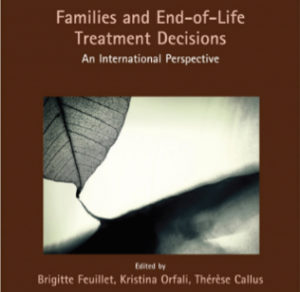
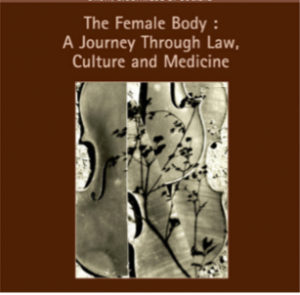
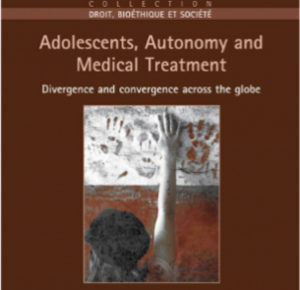
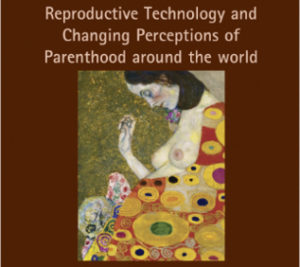
Thérèse brings a comparative aspect to her research, having dual qualifications in English and French law. She commented on a landmark end-of-life case heard by the French supreme administrative court on France 24 news and her work has been cited in French governmental reports on reform of parentage law in France. She is regularly invited to present at international conferences on family and medical law, and to peer-review publications for renowned and established law publishers. This experience of the research process feeds into her work as Director of Postgraduate Research Studies and she oversees the academic development of our PhD students.
Stavros Pantos, on The 'Great Lockdown' Scenario: Evaluating Macroprudential Measures and Policy Responses to COVID-19 for the European Banking Sector
 Stavros’ current research captures the evaluation of macroprudential policies and measures as a response to COVID-19, examining how to prepare the banking system for the next financial/systemic crisis and effectively how to design macroprudential measures and policies to ensure that.
Stavros’ current research captures the evaluation of macroprudential policies and measures as a response to COVID-19, examining how to prepare the banking system for the next financial/systemic crisis and effectively how to design macroprudential measures and policies to ensure that.
The focus is placed on stress testing for pandemic related systemic risks and contagion effects to European banks. Building on the prior work on stress testing for the Great Depression scenario, Stavros examines the systemic implications of the current “Great Lockdown” scenario, commenting on regulatory responses to ensure the resilience of the financial sector and most importantly for European banks.
The aim of this research is to critically examine the effectiveness of the macroprudential policy responses already announced or planned by the prudential authorities and financial regulators/supervisors in Europe, in order to discover unknown evidence on macro-prudential measures and policy. Specifically, the focus of this research is placed on how macroprudential policies are designed, how they work and are applied to European banks, contributing to the relevant legal theory in banking law and financial regulation. The underlying objective is to comment on evidence-based policy making with focus on macroprudential measures and tools in safeguarding the stability of the European banking system to minimize the implications of the existing COVID-19 pandemic while also prepare for the next similar systemic event or crisis.
Ultimate the answers to the underlying research questions provide more insight in relation to the design of macroprudential measures and policies for systemic and financial stability risks with contagion effects as well as their governance and implementation. This eventually complements the exercise of regulators and supervisors in identifying and assessing in a forward-looking manner the specific vulnerabilities that may materialise during this major global economic downturn inclusive of potential source of procyclicality for financial stability risks.
A multi-method approach in empirical legal research is followed to understand the relationship between financial regulation and macroprudential policy. Based on the interdisciplinary aspect of this research covering economics and finance, this multiple approach, which is primarily based on a quantitative empirical legal research leads to more reliable findings and contributes to the theoretical development of the understanding on macroprudential regulation.
A descriptive quantitative design is the selected design to describe the effectiveness of macroprudential tools against COVID-19, capturing the impact of each policy to key variables of banks’ financial position, solvency and liquidity. Specifically considering the focus on macro level, analytical quantitative empirical legal research in the law and the regulation of financial markets is employed.
This research adds to the growing literature on the effectiveness of macroprudential policy and the research for systemic risks and contagion effects for major shocks and recessions, reflecting on the current economy conditions stemming from the implications of the COVID-19 outbreak, with the results of my research in relation to policy and regulation contributing to evidence-based policy making in the form of a knowledge transfer. The preliminary insights have been presented and discussed at the IV International Summer School in Banking and Capital Markets Law and at the 11thRCEA Money-Macro-Finance Conference: The Pandemic Crisis, Macro-Financial Distress, Risks and Opportunities, as well as at the forthcoming 1st International Conference in “Frontiers in International Finance and Banking” from Moscow State Institute of International Relations (MGIMO University).
In a different direction and extending his work on climate change scenarios, Stavros presented a working paper at the SWW DTP Futures Time, Uncertainty, and the Imagination Summer Research Festival before extending further this work on climate change risk management for the Sustainability Disclosure in Corporate Reporting (SDCR) II Edition Summer School at the University of Milano-Bicocca. Stavros also participated at the 13th Euro-Asia Online Summer School: “The Sustainable Development Goals after the COVID pandemic. European and Asian Perspectives on Global Governance” , expected to present an update of his work on climate change scenarios, stress testing and sustainability at the forthcoming 2021 Research Workshop of the Financial Risk and Stability Network.
Christopher Evans on the 2017 Treaty on the Prohibition of Nuclear Weapons (TPNW)
 This month’s Research Spotlight is on Christopher Evans, a final year PhD candidate, and his work on the 2017 Treaty on the Prohibition of Nuclear Weapons (TPNW). Chris’ current research is funded by South, West and Wales Doctoral Training Partnership in collaboration with the Arts and Humanities Research Council.
This month’s Research Spotlight is on Christopher Evans, a final year PhD candidate, and his work on the 2017 Treaty on the Prohibition of Nuclear Weapons (TPNW). Chris’ current research is funded by South, West and Wales Doctoral Training Partnership in collaboration with the Arts and Humanities Research Council.
During my time as a Masters student at Reading, the TPNW was adopted by a dedicated UN Conference in July 2017. This development spurred my desire to pursue a PhD project on the treaty. Specifically, I became interested in assessing precisely what contribution the TPNW brings to the wider nuclear disarmament legal regime, as well as determining whether the treaty can have any impact or influence in revitalising nuclear disarmament efforts generally, given the widespread opposition to the treaty from the so-called ‘nuclear weapon possessing states’. My research demonstrates that in many respects, the TPNW reinforces and builds upon existing prohibitions established by previous nuclear weapons instruments, strengthens existing norms against the use of nuclear weapons. However, due to the TPNW’s delegitimisation of nuclear deterrence practices and the parallel rejection of the treaty by the nuclear weapon states, its present impact on a practical level remains minimal.
Through this research, I have developed a broader interest in the wider regulation of nuclear weapons-related activities and the relevance of contemporary international law in the pursuit of a nuclear weapons-free world. This work has resulted in the publication of various peer-reviewed journal articles, including examination of the TPNW’s nuclear weapons testing prohibition and legal relationship with the 1996 Comprehensive Nuclear Test-Ban Treaty (Melbourne Journal of International Law 2020), a reconsideration of the TPNW’s supposedly ‘humanitarian’ nature (Utrecht Journal of International and European Law 2021), and a discussion of the consequences of recent United States-Iranian hostilities for Iran’s continued membership of the 1968 Nuclear Non-Proliferation Treaty (Journal of Conflict and Security Law 2021). Additionally, my research has extended beyond the TPNW to explore other contemporary nuclear weapons-related developments, including an appraisal of the ‘Creating an Environment for Nuclear Disarmament’ initiative launched by the United States as an ‘effective measure’ towards nuclear disarmament. This research led to a virtual presentation (and subsequent publication) of a paper to the Ninth Annual Cambridge International Law Conference in April 2020.
Alongside these research projects, I have also provided a written submission to the House of Lords, International Relations Committee’s Nuclear Non-Proliferation Treaty and Nuclear Disarmament Inquiry. His submission was cited in the Final Inquiry Report ‘Rising nuclear risk, disarmament and the Nuclear Non-Proliferation Treaty’ published in April 2019. Additionally, I was announced as a finalist for the University of Reading’s 2021 PhD Researcher of the Year award, winning the Prosperity and Resilience Research theme. Following my planned thesis submission later this year, I have secured a post-doctoral position working remotely on disarmament law issues with scholars from the School of Law at the University of Auckland beginning in November 2021. In this role, I hope to further develop my work on the TPNW beyond its nuclear disarmament-related provisions to instead explore the subsequent implementation of the TPNW – particularly its positive obligations concerning victim assistance and environment remediation – following the first meeting of states parties due to be held in January 2022.
Marie Aronsson-Storrier on international law and peacetime disasters
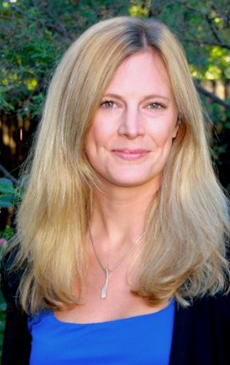
While my current research is primarily focused on peacetime disasters, I started my career as a researcher working on the international law of armed conflict and the use of force, and I completed my PhD at the University of Melbourne (2017) with a thesis on ‘Covert Operations and the Development of International Law on the Use of Force’. The thesis formed the basis for my monograph Publicity in International Lawmaking: Covert Operation and the Use of Force, which was published by Cambridge University Press in December 2020. The book explores how best to recalibrate the understanding of international lawmaking through the lens of increased reporting and legal debate around covert and quasi-covert operations, with a particular focus on the use of armed force. Raising questions as to the impact that covert and quasi-covert acts do and should have on the development of international law, it further examines how state silence around such operations has opened up significant space for legal scholars and other experts – often educated and living in states with significant military power – to influence international legal developments relating to global security.
My more recent research is centred around international law and disasters, with a particular focus on disaster risk reduction and lawmaking processes. In this vein, I co-edited (with Katja Samuel and Kirsten Bookmiller), the Cambridge Handbook on Disaster Risk Reduction and International Law (CUP, 2019) which is the first collection to map existing international legal obligations relating to the reduction of disaster risk. In 2017, together with Dr Karen da Costa, I also edited a special section on International Law and Disasters in the journal Disaster Prevention and Management. My individual contribution to the section, entitled ‘Sanitation, Human Rights and Disaster Management’, linked debates around the international law on human rights and disaster risk management with debates around the human right to sanitation. The article was awarded Outstanding Paper in the Emerald literati awards 2018, which was a wonderful confirmation of how the disaster studies community has started to embrace legal scholarship.
Over the last few years, I have also developed my interdisciplinary work on disaster and international law. My current work explores ways in which we can incorporate lessons from critical disaster studies into the analysis of international law. This can be seen in my contribution to the International Journal of Disaster Risk Science Special Issue ‘Five Years of the Sendai Framework for Disaster Risk Reduction’ in 2020 ( ‘Sendai Five Years on: Reflections on the Role of International Law in the Creation and Reduction of Disaster Risk’), and ‘Beyond Early Warning Systems: Querying the Relationship between International Law and Disaster Risk (Reduction)’ (Yearbook of International Disaster Law, 2019).
Most recently, I have co-edited (together with Dr Rasmus Dahlberg) the forthcoming interdisciplinary collection Defining Disaster: Disciplines and Domains (Edward Elgar, 2022).
I am currently writing A Research Agenda for Disaster Law (commissioned by Edward Elgar), which covers aspects such as the application of human rights in disaster risk reduction and response with a particular focus on marginalised groups and persons, the integration of DRR into the wider Sustainable Development Agenda 2030, disaster risk creation, and a critical analysis of actors involved the making and development of ‘Disaster Law’.
In addition to my academic research, am also actively involved in law- and policymaking on disaster risk reduction. In 2020 I received funding from the Swedish Civil Contingencies Agency (MSB), in order to conduct a gap analysis of Sweden’s work in accordance with the Sendai Framework for Disaster Risk Reduction 2015-2030’s fifty-nine measures for the national and local levels. The project involved an analysis of existing laws, policies, and reports, and was further informed by interviews with representatives from national government departments, authorities and local governments. The final report was submitted in February 2021, and MSB has already started to use the findings of the report to develop a national action plan for disaster risk reduction.
William Page on contemporary surveillance activities and the impact this has upon public spaces
 This month’s Research Spotlight is on William Page, an early career researcher, and his work on contemporary surveillance activities and the impact this has upon public spaces. William’s current research is funded by the South East Network for Social Sciences through a doctorial training partnership provided by the Economic Social Research Council.
This month’s Research Spotlight is on William Page, an early career researcher, and his work on contemporary surveillance activities and the impact this has upon public spaces. William’s current research is funded by the South East Network for Social Sciences through a doctorial training partnership provided by the Economic Social Research Council.
The Divergence of Privacy & Data Law in a Surveillance Society
William’s current research addresses socio-legal issues embodied within the deployment of Automatic Facial Recognition (AFR) technology. Within contemporary society both public and private sectors have sought to incorporate this technology into their policing strategies in an attempt to bring a new level of security to society. This research considers whether these technological advancements could hinder our ability to exercise and understand our fundamental rights within public spaces.
William’s research demonstrates how the deployment of AFR technology, within the public and private sectors, present core regulatory inconsistencies within the UK’s privacy and data framework. These inconsistencies are caused by the public and private sectors being regulated as distinctly separate bodies. This results in the allocation of privacy rights, within public spaces, becoming dependent on who is behind the camera. This places members of the public in a precarious position, as current law is inadequate, lacking in clarity, and does not effectively enable an individual to know and vindicate their rights. These preliminary insights have been presented and discussed at the Trinity College Dublin Law School Colloquium (2021).
This research will be further developed through exploring how these legal challenges have impacted the practical deployment of AFR technology within policing and private security. These insights seek to develop a practical insight into how security practices can impact social control within public space. William believes through understanding the practical realities of contemporary surveillance the current inconsistencies of law can be rectified to balance the needs of security and the fundamental rights of citizens.
Dr Mark Wilde shares his passion for rail law
 Dr Mark Wilde is a pioneer in the field of rail law and is one of only a handful of academics in the country working in the area.
Dr Mark Wilde is a pioneer in the field of rail law and is one of only a handful of academics in the country working in the area.
One does not automatically associate the subjects of railways and law. However, the railways have kept many lawyers in business from the dawn of the railway revolution! Without their expertise it would not have been possible to acquire the land to build railways and the powers to operate them. Today, the railways are still one of the country’s largest and most complex industries raising a multitude of legal issues.
 Mark carries out research and has published articles relating to all aspects of the industry. His research covers the whole span of railway history, from the history of litigation on fire damage caused by sparks from steam locomotives, to potential noise nuisances that may be caused by HS2.
Mark carries out research and has published articles relating to all aspects of the industry. His research covers the whole span of railway history, from the history of litigation on fire damage caused by sparks from steam locomotives, to potential noise nuisances that may be caused by HS2.
 On his Railways and Law blog he offers insights into topical issues ranging from level crossing safety to the spread of Japanese Knotweed from railway embankments.
On his Railways and Law blog he offers insights into topical issues ranging from level crossing safety to the spread of Japanese Knotweed from railway embankments.
It is Mark’s long term ambition to establish railway law as a distinct branch of legal study and is working towards establishing a specific course on the subject.
Dr Fola Adeyemo on whistleblower protection and banking regulation
 Dr Folashade Adeyemo‘s current research focuses on two areas broadly speaking. The first is whistleblower protection, with a focus on the Public Disclosure Act 1988. Her most recent publication is titled Rebutting the Presumption: Are Whistleblowers Really Protected Under PIDA and in the Case of the UK Banking Industry?, and was published by the Journal of Business Law. This paper was earlier accepted for presentation at the Athens Institute for Education & Research in 2019, and a webinar, hosted by the Global South Economic Dialogue on Financial Crime in 2020.
Dr Folashade Adeyemo‘s current research focuses on two areas broadly speaking. The first is whistleblower protection, with a focus on the Public Disclosure Act 1988. Her most recent publication is titled Rebutting the Presumption: Are Whistleblowers Really Protected Under PIDA and in the Case of the UK Banking Industry?, and was published by the Journal of Business Law. This paper was earlier accepted for presentation at the Athens Institute for Education & Research in 2019, and a webinar, hosted by the Global South Economic Dialogue on Financial Crime in 2020.
The second major area of research focus is banking regulation, with a jurisdictional interest in African countries. Fola’s earlier research focused specifically on Nigeria, and resulted in two publications in the Journal of International Banking and Regulation: The Achilles’ Heel of Whistleblowing: The Position of Nigerian Legislation (2016), focusing on examining the Nigerian legal framework for whistleblower protection; and Fifty Shades of Intrusion: A Critical Analysis of Nigeria’s Whistleblower Protection Bill 2011 (2017), exploring the provisions of the Bill which was presented to the Nigerian National Assembly. She also published two further papers in the same year: A Comparative Analysis of the Asset Management Corporation of Nigeria and the US Troubled Asset Relief Program in the Banking and Financial Law Review, which compared the Nigerian and US approach to managing debt; and Towards the Creation of a Specialist Tribunal for Banking Law in Nigeria in Financial Regulation International, which argues for a specialist court in Nigeria to be created to address banking law matters.
Fola’s primary interest is in Banking Law, and this has a number of different components. In terms of teaching, she recently developed a new Banking Law module for undergraduate students in Part 2, which – in its first year – attracted over 190 students. She has also been invited to contribute a chapter on Banking Law to an edited collection on commercial law, forthcoming with Edward Elgar in 2021. In terms of her research, her current interest is on banking regulation and bank insolvencies in emerging economies. In relation to the former, Fola’s specific interest is on the effectiveness of banking regulation with a particular focus on comparing the Nigerian position with developed economies such as the UK and the US, but also with emerging economies such as South Africa and Kenya. In relation to the UK and the US and separate to the historical and colonial ties with these comparator jurisdictions, her interest is on the regulatory responses to the 2008 global financial crisis and how the banking environment in Nigeria can be improved. This research has led to Fola’s forthcoming accepted monograph, Banking Regulation in Africa: The Case of Nigeria and Other Emerging Economies (Routledge 2021). She has also written an article on Africa more widely in relation to the proposed Africa Central Bank, which was published in Financial Regulation International here.
In relation to developing economies, she is interested in how emerging economies manage bank insolvencies and her jurisdictional focus remains on Nigeria and other emerging economies. Fola co-hosted a conference with Lancaster University titled Bank Insolvencies in Developing Economies. This well attended conference also resulted in the acceptance of an edited collection – Bank Insolvency Law in Developing Economies – which is to be published by Routledge in 2021.
Dr Ruvi Ziegler and his work on EU citizenship, membership, and political participation
 This month’s Research Spotlight is on Dr Reuven (Ruvi) Ziegler and his work on EU citizenship, membership, and political participation.
This month’s Research Spotlight is on Dr Reuven (Ruvi) Ziegler and his work on EU citizenship, membership, and political participation.
Following the 23rd June 2016 referendum on the UK’s EU membership, Dr Ziegler sought to combine his scholarly interests with public engagement on a supranational (EU), national (UK) and local (Oxford) level. He was elected as the inaugural Chair of the Oxford European Association and (in 2018) as the elected Chair of the Board of Trustees of New Europeans (UK).
A leading expert in electoral rights whose monograph Voting Rights of Refugees has won acclaim, Dr. Ziegler authored in the lead-up to the 2019 European Parliamentary Elections a report entitled Political Participation of Mobile EU citizens: UK as part of the FAIREU (Fostering Awareness, Inclusion and Recognition of EU Mobile citizens’ Political Rights’ (2018) and EU-CITZEN (Academic Network to perform research services on issues pertaining to citizenship of the Union and related policies) projects (managed by GlobalCIT, an initiative hosted at the European University Institute to which Ruvi is a regular Contributoras a UK country expert). The projects’ findings were presented to the European Commission.
Dr. Ziegler participated in a Debate on ‘The Rights of EU citizens in the face of Brexit’ hosted by the European Parliamentary Association

Dr. Ziegler at the European Parliamentary Association debate
; co-drafted a European Parliament cross-party motion calling for the protection of acquired rights; took part in a Stakeholder meeting with the European Parliament President and spoke at the Sakharov Debate, ‘Uncertain Future: Rights and Citizenship in post-Brexit Britain’ hosted by the European Parliament in the UK.

Dr. Ziegler at the Sakharov debate
On the national (UK) level, early on in the Brexit process, Dr. Ziegler addressed the All-Party Parliamentary Group on EU citizenship rights. He made a written submission to the EU (Justice) sub-committee of the House of Lords as part of its Brexit: citizens’ rights inquiry where he argued that ‘The UK should guarantee all EU27 citizens in the UK that their electoral rights will be maintained in law’. In June 2017, jointly with Prof. Dimitrios Giannoulopoulos, Ruvi co-authored a policy paper entitled ‘The rights of EU27 citizens in the UK and UK citizens in the EU27‘. In February 2017, prior to the passage of the (then) EU (notification of withdrawal) Bill, Dr. Ziegler made the normative case for unilateral guarantees, arguing that it is both logically flawed and morally indefensible for the UK to use EU27 citizens’ rights as ‘bargaining chips’ in the (then forthcoming) negotiations.
At a local (Oxford) level, some of Ruvi’s public initiatives included convening a panel on Brexit Impacts in the Oxford region (video); a meeting with MEPs to discuss the impact of the (them) prospective negotiations on rights of EU27 citizens in the UK and UK citizens in the EU27; and a meeting prior to the UK House of Commons vote on the then EU (notification of withdrawal) bill.
Dr. Ziegler at the Oxford Town Hall event
Dr Ziegler’s current research in the area of EU citizenship, political participation, and identity centres around two main projects.
The first, a book chapter entitled ‘EU Citizenship in the Shadow of Brexit’, which will appear in Dora Kostakopoulou and Daniel Thym (eds), Research Handbook on European Union Citizenship‘. In his research, he seeks to explore the Brexit effect on electoral participation rights and the significance of disenfranchisement for our evolving understanding of the meaning and content of EU citizenship. Ruvi has discussed his ongoing research at the following forums: an invited workshop on ‘Brexit and International Law’ at Maastricht University; A New Europeans/Federal Trust conference; The Faculty of Law, Thammasat University (Bangkok); European Studies Center (New Haven); Minerva Center for the Rule of Law in Extreme Conditions (Haifa) and the International Law Forum, Hebrew University (Jerusalem); WZB International Citizenship Law Project (Berlin); McMullin statelessness centre, Melbourne Law School (Melbourne) . He has also published short contributions on related matters: ‘The Brexit effect – European Parliamentary Elections in the UK‘ (European Law Blog) and ‘Absent-Present Membership: EU Citizens in Brexit Britain‘ (International Association of Constitutional Law Blog).
The second, the EU passport project (full name: ‘my father was a wandering European: Triple Loyalties in Brexit Britain: British, Jewish, European?’). This is a cross-disciplinary project (co-initiator: Simon Albert) hosted by the Jewish Historical Society of England which seeks to gather the motivations, dilemmas, and feelings of people across the British Jewish community about (re)acquiring citizenship of an EU27 country that their ancestors have left, fled, or indeed were driven out of. To what extend do their considerations differ from those of other Britons who are seeking to retain their EU citizenship rights (e.g. by rediscovering Irish routes), and what reclaiming ancestral citizenship tells us about the links between citizenship, identity, and community? The project will culminate in a special volume of Transactions, the JHSE’s flagship publication. The project was publicly launched in London on 9 December 2019 at the Wiener Library. It featured in the Jewish Chronicle, Tablet magazine, and The Guardian. He presented the project at ‘Limmud Together’ conference (video) and at an Association of Jewish Refugees webinar (video). Hitherto, more than 120 respondents have filled the project questionnaire. Relatedly, Ruvi was recently interviewed on the Canadian Broadcasting Corporation radio’s ‘As It Happens‘ programme (minutes 26:20-33:20) about the new changes to Austrian law enabling applications for restoration of citizenship from victims of national socialism and their descendants, which are likely to lead to a dramatic increase in the number of applications from British Jews. He was also invited to join an International Advisory Panel of a project entitled ‘Becoming Austrian: European Passports in Brexit Times’ (led by Professors Gideon Reuveni and Michael Collyer and hosted at the Sussex Weidenfeld Institute of Jewish Studies).
Professor Mike Schmitt on the exploitation of the COVID-19 pandemic in cyberspace
 This month’s Research Spotlight is on Professor Michael Schmitt, who has been active with other members of the international law community in shining a spotlight on the extent to which the COVID-19 pandemic is being maliciously exploited by states and nonstate actors in cyberspace.
This month’s Research Spotlight is on Professor Michael Schmitt, who has been active with other members of the international law community in shining a spotlight on the extent to which the COVID-19 pandemic is being maliciously exploited by states and nonstate actors in cyberspace.
According to Mike,
“Such cyber operations range from classic criminality, such as conducting ransomware attacks against medical facilities, to online misinformation campaigns designed to disrupt the public health responses of other nations.”
In April, Mike presented on the international law implications of the pandemic in cyberspace during a virtual global workshop sponsored by the Cyber Peace Institute, where he sits on the Advisory Board. The following month, he was one of over 30 other leading international law scholars and practitioners from around the world who issued the “Oxford Statement on the International Law Protections against Cyber Operations Targeting the Health Care Sector”. Later that month, Mike joined former US Secretary of State Madeleine Albright, Nobel Prize recipients Desmond Tutu and Mohamed ElBaradei, former President of the Soviet Union Mikhail Gorbachev, President of the International Committee of the Red Cross Peter Maurer, Microsoft President Brad Smith, former President of Mexico Ernesto Zedillo and 35 other global leaders in calling on all governments to work together to stop cyber attacks hampering hospitals and international organizations fighting COVID-19.
Mike has also turned his scholarship to the subject. In collaboration with Professor Marko Milanovic from the University of Nottingham, he authored a major study on ‘Cyber “Attacks” and Cyber (Mis)information Operations during a Pandemic’, that examines how hostile cyber operations during a health crisis can violate the international law rules requiring respect for the sovereignty of other states, prohibiting intervention and the use of force in international relations, and obligating states to exercise due diligence in ensuring their territory is not used as the base for such cyber operations. Additionally, in the article, Mike and Professor Milanovic take a deep dive into COVID-19 related human rights rules that bar certain cyber operations placing individuals at risk, as well as the obligation of governments to protect those on its territory from such operations. Their work is forthcoming in a special edition of the Journal of National Security Law and Policy, a prominent American law journal.
The University of Reading School of Law has been actively delivering its new Executive Course in the International Law of Cyber Operations. Directed by Mike, the programme is designed for government officials with a portfolio related to cyber activities. Participants include not only lawyers, but also policy makers and those involved in the technical aspects of cyber operations. The School of Law certifies these courses, which are offered as part of the global capacity-building programs of various nations. In May 2020, the first week-long course was delivered virtually to participants from throughout the Americas under the sponsorship of the Organization of American States (OAS) and the Netherlands Ministry of Foreign Affairs (MFA). In May and June this year, Mike also gave a series of webinars on issues on cyber law for Australian attorneys from throughout the government at the request of the Australian Department of Foreign Affairs and Trade (DFAT).
Next on the agenda are two virtual courses in July 2020 sponsored by DFAT. The first is a three-day seminar for “Women in Cyber” for government officials across the globe. It will be followed by a virtual Executive Course for Indonesian government officials dealing with cyber matters. While the calendar for the remainder of 2020 remains in flux due to the pandemic, including whether the courses will be delivered online or in person, two more Americas courses in collaboration with the OAS and Dutch MFA, as well as three Executive Courses for government officials from Association of South East Asian Nations (ASEAN) member states that are jointly sponsored by Singapore’s Cyber Security Agency (CSA), the Dutch MFA and Australia’s DFAT, are already scheduled. Given the frequency and severity of cyber-attacks, and the desire of nations around the world to identify and develop norms governing cyber operations, Reading School of Law’s Executive Program is a major contribution to stability and security in cyberspace.
Professor Rosa Freedman and her 'Safeguarding Children in Peacekeeping Project'
 This month’s Research Spotlight is on Professor Rosa Freedman and her ‘Safeguarding Children in Peacekeeping Project‘ that she is jointly running with Sarah Blakemore, the CEO of Keeping Children Safe.
This month’s Research Spotlight is on Professor Rosa Freedman and her ‘Safeguarding Children in Peacekeeping Project‘ that she is jointly running with Sarah Blakemore, the CEO of Keeping Children Safe.
The vast majority of the over 100,000 United Nations (UN) uniformed peacekeeping personnel perform their jobs with courage, dedication and professionalism. Yet those who commit sexual offences bring shame on the entire UN system and betray the trust of those that they have been sent to protect. There is a need for system-wide reform to ensure that such abuses cannot again occur with widespread impunity. Despite recent measures announced by the new UN Secretary-General, attempts to reform the system have been piecemeal and have not addressed a complex problem that requires nuanced and targeted responses.



While there is general agreement at the UN, in member states, and from civil society, about what needs to be done to address the issue of sexual exploitation and abuse by peacekeepers, very few practical solutions have been proposed let alone implemented. A key problem is that the current laws, policies and practices to tackle sexual exploitation and abuse operate across different scales, including at the international level, at the UN level, at the local level where the peacekeeping operation is being carried out, and within the countries that contribute troops to peacekeeping operations. As a result, very few effective solutions have been designed that can address the causes and consequences of peacekeeper sexual exploitation and abuse. The project team have conducted research to produce a robust, evidence-based solution that can be adapted to be implemented in all peacekeeping entities in a context-specific manner.



The project started in 2016 and is funded by the Arts and Humanities Research Council and the British Academy, and has been undertaken together with the UN and the UK Department for International Development. As a result of this work and her expertise in this field, the UN appointed Rosa as a member of the Secretary-General’s Civil Society Advisory Board on preventing sexual exploitation and abuse, and as a specialist adviser on safeguarding to the UK Government’s International Development Select Committee.



More information on the project, including its field work, can be found here and recent articles, project reports and videos can be accessed here.
